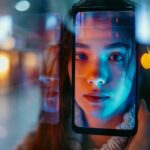A recent CA DMV Hackathon highlighted the growing potential of mobile driver’s licenses (mDLs) for various real-world applications—with Trinsic and Mitek Systems having successfully demonstrated the use of mDLs for renting and test-driving cars, showcasing how digital identity verification could be streamlined in practical scenarios.

The event drew significant attention from financial institutions, with representatives from US Bank, TBD, VISA, and other major banks present, indicating strong interest in mDL integration for financial services.
Participants also showcased compelling use cases for mDLs in social impact contexts, such as migrant farm worker verification and border crossing scenarios. Despite limited production deployments, high-frequency use cases in industries like cannabis, healthcare, and travel are expected to drive broader adoption.
The hackathon demonstrated the effectiveness of mDLs in identity verification and KYC, with Trinsic+Mitek’s car rental demo, Incode’s financial institution KYC solution, and Ultrapass Identity Corp’s fraud reduction approach emphasizing their utility.
“It’s great to see how California’s DMV is actively promoting enterprise adoption. The more utility mDLs have, the more people will adopt,” commented Trinsic co-founder and CEO Riley Hughes. “It’s a virtuous cycle, and the DMV itself is best-suited to catalyze it. I’d love to see other issuers follow suit to spur relying party adoption.”
Last month, California launched a pilot program allowing residents to add their digital driver’s license or state ID to Apple Wallet, enabling them to carry state identification on their iPhone or Apple Watch. The program includes over 650,000 participants and follows a previous rollout on Google Wallet.
While the digital IDs are accepted at specific airport terminals, they are not yet recognized by law enforcement or most businesses. Privacy protections are in place, with encryption ensuring that data is only accessible when users choose to present their ID. The issuance platform was provided by SpruceID, and the registration process involves selfie-based facial recognition to verify the user’s identity.
–
October 2, 2024 – by Tony Bitzionis







Follow Us